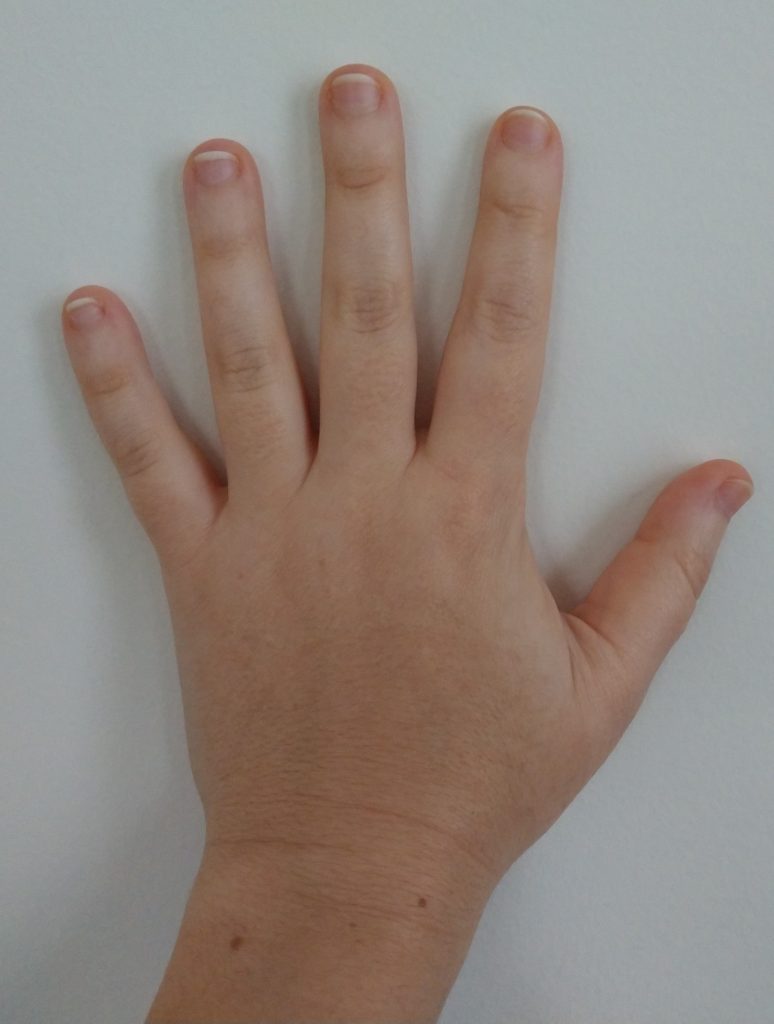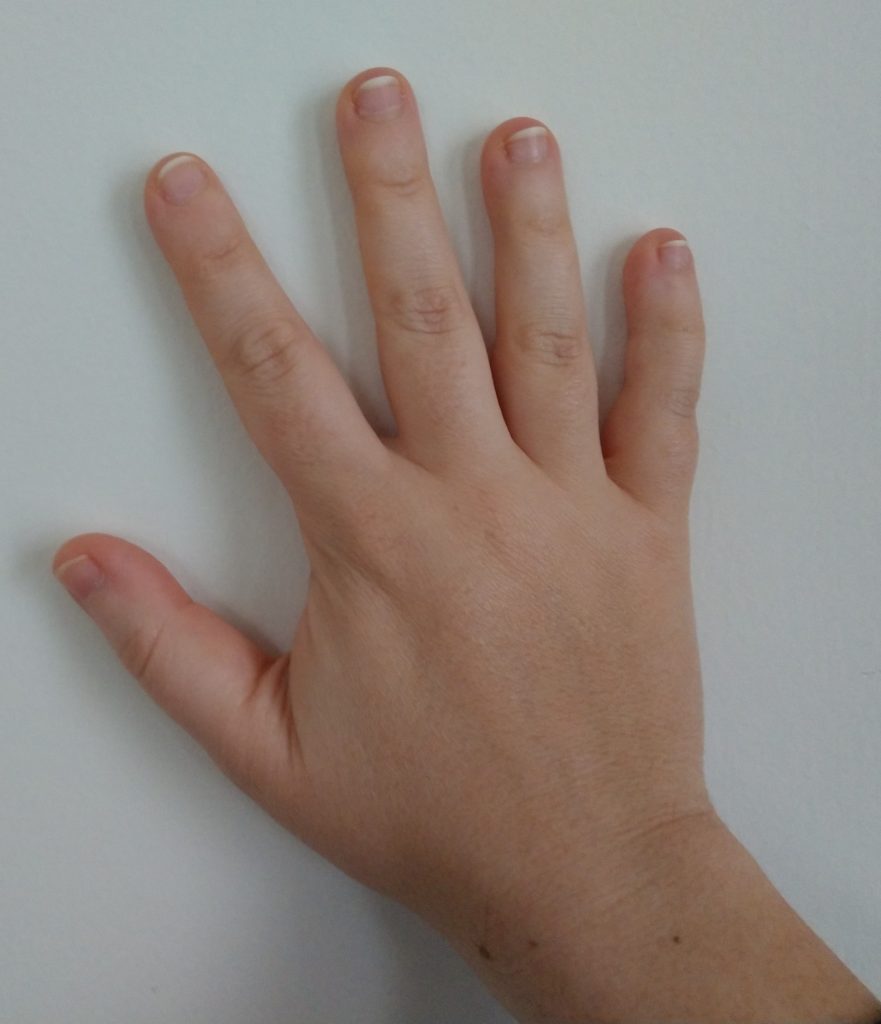Today’s post is one I wrote about a year ago, shortly before the pandemic started affecting my daily life in a substantial way, but it remains relevant. Better yet, I haven’t lapsed back into the old habits I describe here, so if anything I feel even more proud of it now than I did when I wrote it, given all that’s happened within the past year.
Here you go:
One of the advantages of reading for comps when you don’t have any other obligations like TAing is that you get a lot of time to reflect on yourself. A lot of this time is spent thinking about what interests you intellectually and why, but you also start to notice and question your more mundane habits. And sometimes, once you become aware of them, you realize it’s time for a change.
That’s the story behind my hands, and more specifically, my recent effort to stop picking at them.

I don’t consider my hands especially attractive, but that’s never been a priority for me because I’m far more interested in what they can do, like play music, type, or draw. That said, however, one major reason why I never found my hands particularly good-looking was because of what I did to them. I bit my nails until my mid-20s, and until a couple of months ago, I picked at the skin around my fingers to the point of bleeding. I’ve always been very self-conscious about both of these habits and what they do to my hands, but for a long time, I didn’t feel capable of stopping on my own.
Until I did. I stopped biting my nails during the second semester of my final year at Williams. Not unlike now, I was going through a period where I didn’t have any classes and had whole days to myself to write my Qualifying Paper. With all the time to myself, I started paying attention to my nail-biting. I always figured I bit them out of anxiety, but what I discovered was that it was just a mindless habit, something I did without thinking. As a result, I started calling myself out on it, and stopped within a few weeks.
Skin picking proved a lot more difficult, and I would continue doing that for another ten years. The nails themselves looked okay, but the skin beds around them were usually covered in scabs or reddened with new flesh. In other words, they weren’t pretty.
But a few months ago, I started paying more attention to my skin-picking. Whereas in the past I always just focused on how badly I felt about doing it, this time I started noting when I would do it to figure out any patterns. Not surprisingly, I noticed I picked my skin a lot in class since that was where I was spending a lot of my time. I had always figured it was because of performance anxiety or nerves, until I realized I wasn’t actually feeling anxious at all. Compared to when I was getting my Master’s, I felt a lot more relaxed and comfortable in seminars, knowing that I could and did participate in a meaningful way.
If skin-picking didn’t provide stress relief, I thought, then why the hell was I doing it?
That’s when I realized that skin-picking for me is a form of fidgeting. Whenever I need to sit for a long period of time, like in a meeting, my hands start fiddling around so that I’m less antsy. In the worst-case scenario, that means literally picking at themselves. Reading for exams confirmed my hypothesis. Without having to participate in class discussions or complete other assignments, my anxiety is very low these days, yet I still found myself picking. Like my nail-biting, then, I started paying attention to what I was doing, and within a few weeks, I stopped altogether.
Here’s how I did it:
- I acknowledge that I fidget, but I’m going to express that behavior through means other than skin picking.
- Whenever I settle down to read for the day, I make sure I keep pens, objects with fun textures, and other things lying around that my hands can play with when they started to get bored.
- If my fingers start touching the areas around my nailbeds looking for skin to pick, I’ll acknowledge what I’m doing, but tell myself that I don’t need to pick. Instead, I’ll look at my hands and tell myself how nice they look now that I’m not tearing at them.
- If I do see a piece of skin that looks like it needs to be picked off, I use clippers so that I don’t begin a picking spiral.
- If I’m going out in public where playing with pens or toys can be distracting, I wear long necklaces or rings that let me fidget in a more subtle manner. This is what I did for the conference with the Chesapeake Digital Humanities Consortium.
- Above all, I remain self-aware. If I find myself slipping, I acknowledge what I’m doing, stop, and move on to something else.
For the first time in my adult life, my hands aren’t covered in scabs, and I don’t mind showing them in a photograph:

Of all things I’ve accomplished since being at William and Mary, this is one of my proudest. Sure, it may not yield the same productive results as passing exams or publishing an article, but overcoming an old, deeply-ingrained habit that made me feel embarrassed and self-conscious? That’s a hell of an accomplishment in my opinion.
Do you skin-pick? Sometimes we need help when we’re trying to change old behaviors, and skin-picking is no exception. If you’re looking for resources, try this site:
Or this site: